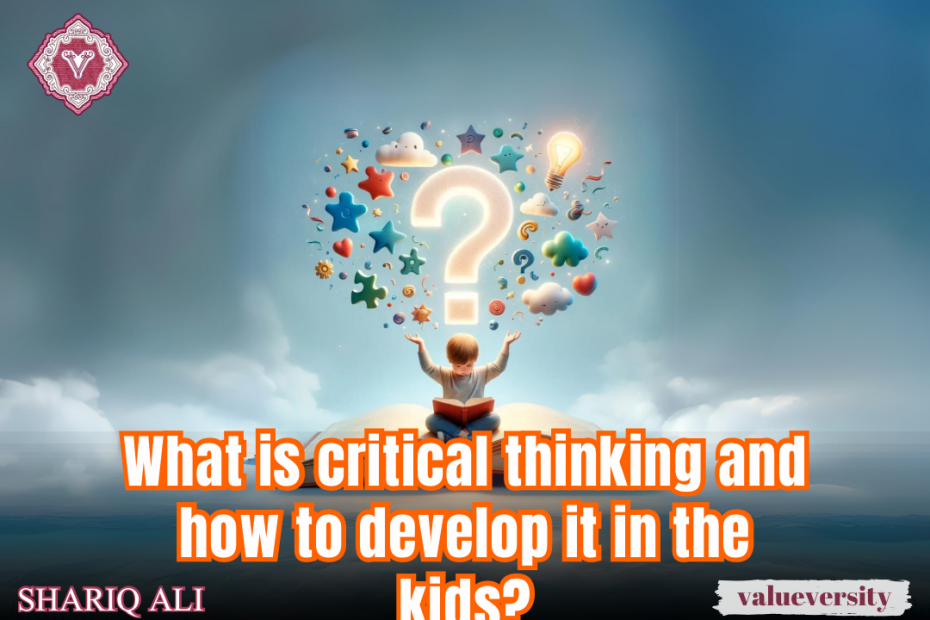Life’s FAQs
(Frequently Asked Questions)
What is critical thinking and how to develop it in the kids?
Critical thinking is the ability to objectively analyze, evaluate, and interpret information and arguments in a logical and systematic manner. It involves actively questioning assumptions, considering multiple perspectives, and applying reasoning skills to make informed judgments and decisions. Developing critical thinking skills in children is crucial as it equips them with the tools to navigate the complexities of the world and empowers them to think independently and creatively.
Here are some strategies to foster the development of critical thinking in kids:
Encourage questioning: Encourage children to ask questions and be curious about the world around them. Teach them to inquire about why things happen, how they work, and what evidence supports certain ideas or claims.
Teach reasoning skills:
Introduce logical reasoning skills by discussing cause and effect relationships, identifying patterns, and making connections between different ideas. Help children understand the importance of evidence and how to use it to support their arguments.
Promote problem-solving:
Encourage children to solve problems independently by providing open-ended questions or scenarios that require them to think critically and find solutions. Encourage them to consider alternative approaches and evaluate the pros and cons of different options.
Develop decision-making skills:
Teach children to weigh different factors, consider potential consequences, and make decisions based on logical reasoning rather than impulsive reactions. Encourage them to think through the possible outcomes of their choices.
Engage in discussions:
Engage children in meaningful discussions where they can express their opinions and learn to listen to others. Encourage them to articulate their thoughts, support their arguments with evidence, and consider different viewpoints.
Analyze media and information:
Teach children to evaluate information from various sources, including online content, advertisements, and news. Help them identify biases, evaluate credibility, and distinguish between fact and opinion.
Encourage creativity:
Foster creativity and imagination in children, as it plays a vital role in critical thinking. Encourage them to think outside the box, consider alternative perspectives, and explore different solutions to problems.
Practice reflection:
Encourage children to reflect on their own thinking processes and decision-making. Ask questions like, “Why did you make that choice?” or “What could you have done differently?” This helps develop metacognition and self-awareness.
Provide real-world experiences:
Expose children to real-world situations that require critical thinking, such as visiting museums, engaging in hands-on experiments, or participating in group projects. This helps them apply critical thinking skills in practical contexts.
Model critical thinking:
Be a role model by demonstrating critical thinking skills in your own life. Share your reasoning process, discuss different perspectives, and encourage open dialogue within the family.
By implementing these strategies, parents and educators can support the development of critical thinking skills in children. Cultivating critical thinking at an early age sets a strong foundation for lifelong learning and enables children to navigate an increasingly complex and information-rich world.
